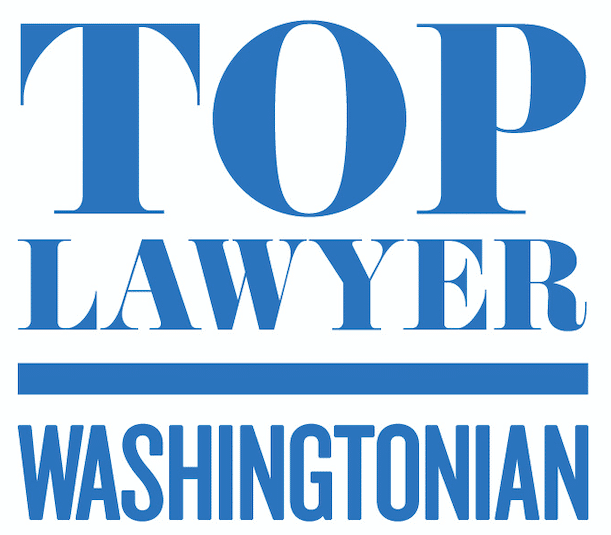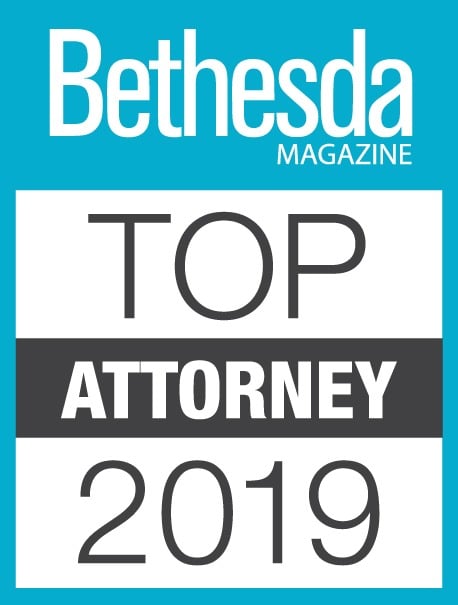False Claims Act Retaliation Provision Protects “Duty Speech” Disclosures
Traditionally, employees whose job duties involve investigating or reporting fraud were held to a heightened pleading standard under the anti-retaliation provision of the False Claims Act.. Cases applying the 2009 False Claims Act amendments, however, have cast doubt on the continued application of that standard for those so-called “fraud alert” employees who blow the whistle.
In January 2018, a New York district judge soundly rejected an employer’s attempt to impose a “fraud alert” exception to the FCA whistleblower protection law. The opinion in Malanga v. New York University, No. 14cv9681 (S.D.N.Y. 2018) offers compelling reasons to abandon this doctrine.
- The 2009 amendment to the FCA expanded the FCA’s scope of protected activity to encompass efforts to stop 1 or more violations of the FCA. “By expanding the scope of protected activity, Congress made clear that protections under the FCA are designed to cover steps “taken to remedy . . . misconduct through methods such as internal reporting to a supervisor or company compliance department.” 155 Cong. Rec. E1295-03, E 1300 (daily ed. June 3, 2009). “Given that the current version of [the FCA as amended] no longer limits protected activity to actions in furtherance of potential FCA actions, [the] requirement that employees involved in investigating potential fraud must make clear their intentions of bringing or assisting in an FCA action is no longer required by the statutory text. Jones-McNamara v. Holzer Health Sys., 630 F. App’x 394, 409 n.6 (6th Cir. 2015). Indeed, one court has held that ‘[s]ince a plaintiff now engages in protected conduct whenever he engages in an effort to stop an FCA violation, the act of internal reporting itself suffices as both the effort to stop the FCA violation and the notice to the employer.’ Manfield v. Alutiig Int’l Solutions, Inc., 851 F. Supp. 2d 196, 204 (D. Me. 2012) . . . Thus, a fraud-alert employee does not have to offer any more evidence of notice than a non-fraud alert employee so long as the jury is convinced that the employer was aware of the protected activity.”
- “[H]olding fraud-alert employees to a higher notice standard would essentially impose a hardship on a class of plaintiffs who were subject to retaliation simply because they were doing their job—alerting their employers of a fraud and attempting to prevent an FCA violation.”
In Mooney v. Americare, Inc., Patricia Mooney was a staff development manager and then the director of quality improvement for defendant Americare Certified Special Services, Inc. (“Americare CSS”), which provided home health nursing services both in private residences and in elder-care facilities. United States ex rel. Mooney v. Americare, Inc., No. 06-CV-1806-FB-VVP, 2013 WL 1346022 (E.D.N.Y. Apr. 3, 2013).
Mooney’s responsibilities included overseeing Americare’s Medicare and Medicaid billings to ensure their compliance with applicable regulations, and in that capacity she became aware of the defendants’ fraudulent referrals and the fraudulent alteration of documents submitted to Medicare and Medicaid. Mooney alerted her supervisors to the incidents in a memo, which described the incidents as “clearly Medicaid fraud.” Id. at *8. Mooney pushed for more rigorous chart audits and, thereafter, received her first negative performance review. Mooney was “relieved of any duties involving the review of Medicare billing,” and the billing cabinets were “double-locked.” Id. Mooney was fired later that year. Mooney filed three qui tam claims and a retaliation claim under the FCA against Americare, Inc., Americare CSS, and Americare Therapy Services (collectively “Americare”), as well as three individual defendants, alleging retaliation for disclosing kickbacks from fraudulent referrals and the fraudulent alteration of documents submitted to Medicare and Medicaid.
Americare moved to dismiss, arguing in relevant part that Mooney failed to allege she engaged in protected activity because she reported to her supervisors not in furtherance of an FCA action but rather in furtherance of her job duties. The court rejected this defense. When faced with a motion to dismiss, the court said, “it is sufficient for a plaintiff—even one employed to investigate her employer’s financial practices—to allege that she was investigating matters which are calculated, or reasonably could lead, to a viable FCA action.” Id. at *9 (internal quotation marks and citation omitted). Mooney’s investigation had several components: she reported the alleged Medicaid fraud to three administrators and sent two memoranda that advocated for more thorough chart audits. In response, the administrators promised to investigate, wrote memoranda about the issues, and procured external audits. And the reports led to two nurses’ being fired. The court concluded, therefore, that Mooney was engaged in protected activity because a reasonable jury could find that Mooney was investigating issues that were “calculated or reasonably could lead to an FCA action.” See id.
Two years later, the U.S. District Court for the Southern District of New York similarly rejected an employer’s duty speech defense. See Malanga v. NYU Langone Med. Ctr., No. 14-cv-9681, 2015 WL 7019819 (S.D.N.Y. Nov. 12, 2015). Michele Malanga was working at the NYU Langone Medical Center as director of research for the Department of Radiation Oncology when she discovered that NYU employees were unlawfully billing the federal government for tests performed on blood specimens, overcharging federal grants for patient clinic visits, and paying for the salary of a post-doctorate employee out of an unrelated federal grant. Malanga investigated these practices and disclosed them to her supervisor and other NYU employees. NYU terminated Malanga’s employment, and Malanga sued under the FCA and anti-discrimination laws.
NYU moved to dismiss, contending that Malanga was subject to more stringent pleading standards because she was a “fraud alert” employee whose job duties required her to address the very billing problems she raised during the course of her employment. Applying the plain meaning of the FCA, Judge William Pauley III rejected NYU’s “duty speech” defense:
Certain courts have held employees whose jobs require investigating fraud against the government to higher pleading standards. However, it is doubtful that those heightened pleading standards survive FERA, which was enacted “to counter perceived judicial interpretations of the protected activity prong . . . .” Those decisions establishing a higher pleading standard for fraud alert employees were concerned with ensuring that the employer was on notice of an employee’s “intentions of bringing or assisting in an FCA action.” Under FERA, a retaliation claim can be stated so long as the employee was engaged in efforts to stop an FCA violation, even if the employee’s actions were not necessarily in furtherance of an FCA claim. Moreover, even if a heightened pleading standard for so-called fraud alert employees exists, Malanga alleges that as a “Director of Research,” “Defendants’ billing practices were outside the scope of Plaintiff’s job duties.” Accepting her allegation as true, this Court cannot determine whether Malanga qualified as a “fraud alert” employee on this motion. Accordingly, Malanga has adequately pled an FCA retaliation claim. Id. at *3 (citations omitted).
For more information about False Claims Act whistleblower protection, click here.
False Claims Act Whistleblower Retaliation Lawyers
The experienced whistleblower attorneys at leading whistleblower law firm Zuckerman Law have substantial experience representing whistleblowers disclosing fraud and other wrongdoing at government contractors and grantees. To schedule a free preliminary consultation, click here or call us at 202-262-8959.



Our experience includes:
- Representing qui tam relators in False Claims Act actions concerning off-label marketing, false billing, and education loan fraud (inflating entitlement to interest rate subsidies).
- Representing whistleblowers in NDAA retaliation claims before the Department of Defense, and Department of Homeland Security, Department of Justice Offices of Inspectors General.
- Litigating False Claims Act retaliation cases.
- Representing whistleblowers disclosing fraud on the government in Congressional investigations.
- Training judges, senior Office of Inspector General officials, and federal law enforcement about whistleblower protections.
In addition, we have substantial experience representing whistleblowers under the Whistleblower Protection Act (WPA) and enforcing the WPA, the law that the NDAA whistleblower provisions are based upon. Two of the attorneys on our team served in senior position at the U.S. Office of Special Counsel overseeing investigations of whistleblower retaliation claims and whistleblower disclosures.
- Eric Bachman served as Deputy Special Counsel, Litigation and Legal Affairs, OSC, where he spearheaded an initiative to combat whistleblower retaliation at the Department of Veterans Affairs. During Bachman’s tenure at OSC, the number of favorable actions for whistleblowers increased by over 50% agency-wide.
- Jason Zuckerman served as Senior Legal Advisor to the Special Counsel at OSC, where he worked on implementation of the Whistleblower Protection Enhancement Act and several high-profile investigations, including a matter resulting in the removal of an Inspector General.
If you have suffered retaliation for whistleblowing and would like to learn more about potential remedies, call us for a preliminary consultation at 202-262-8959 or email us through this website.
See our answers to frequently asked questions about False Claims Act whistleblower protection law.
See our answers to frequently asked questions about False Claims Act qui tam whistleblower awards.









